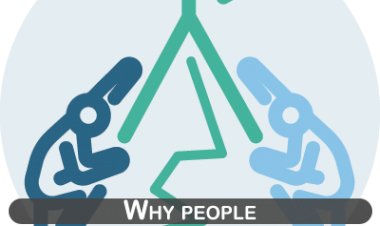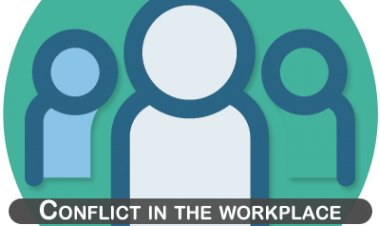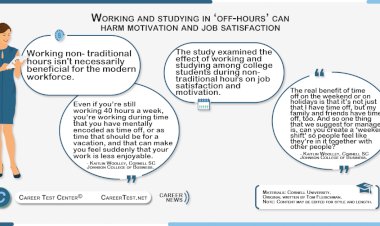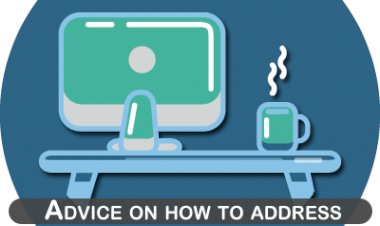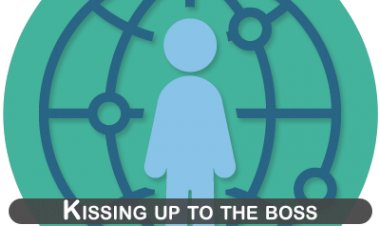People with disagreeable personalities do not have an advantage in pursuing power at work
Disagreeable people do not get ahead faster than others in their organizations.
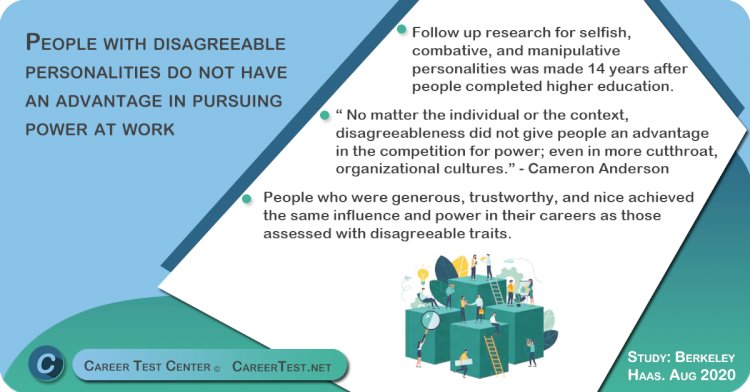
by Berkely Haas
Main titles
- Follow up research for selfish, combative, and manipulative personalities was made 14 years after people completed higher education.
“I was surprised by the consistency of the findings. No matter the individual or the context, disagreeableness did not give people an advantage in the competition for power — even in more cutthroat, ‘dog-eat-dog’ organizational cultures.” - Cameron Anderson
- People who were generous, trustworthy, and nice achieved the same influence and power in their careers as those assessed with disagreeable traits.
- The lack of cooperative behavior and social skills offset any power gained by intimidating or aggressive traits.
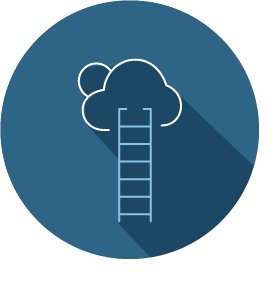
- People most likely to advance expressed extraverted characteristics, such as sociability and assertiveness.
- Research has shown that aggressive Machiavellian behavior has multiple drawbacks, such as self-interest and corrupt culture.
“My advice to managers would be to pay attention to agreeableness as an important qualification for positions of power and leadership. Prior research is clear: Agreeable people in power produce better outcomes.” - Cameron Anderson
- According to the researchers, disagreeableness is a relatively stable aspect of personality that involves the tendency to behave in callous and selfish ways.
- The study identified four main ways that people look to attain power in the workplace. Dominant- aggressive behavior (intimidation), political behavior (alliances), communal behavior (helping others), and competent behavior (being good at one's job.)
Source: newsroom.haas.berkeley.edu

 vneo
vneo 






